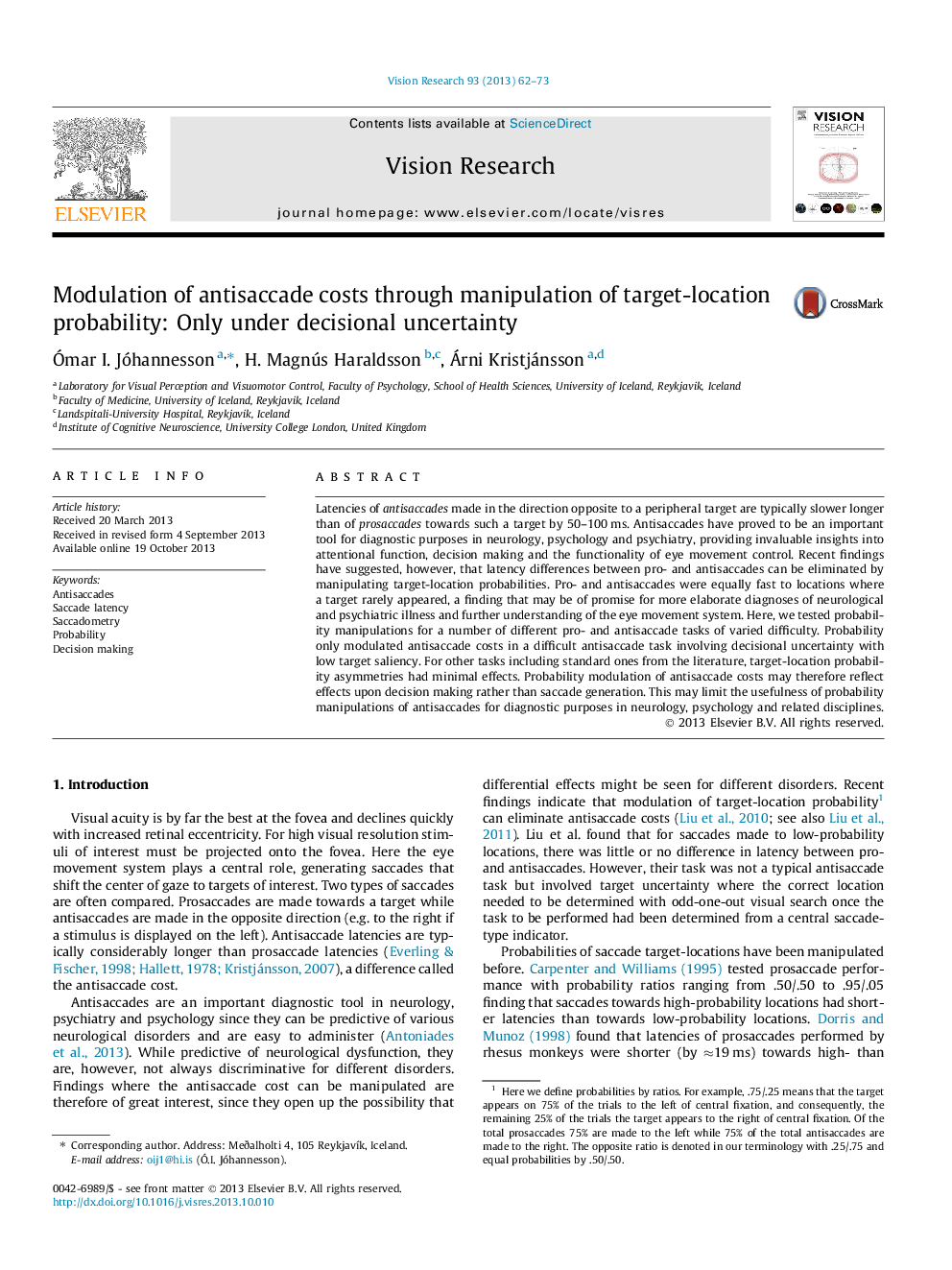| Article ID | Journal | Published Year | Pages | File Type |
|---|---|---|---|---|
| 6203529 | Vision Research | 2013 | 12 Pages |
â¢Antisaccades are important in the toolkit of Neurologists, psychiatrists and psychologists.â¢Recent reports indicate that the antsaccade cost may be affected by landing-point probability.â¢Probability asymmetries had minimal effects on antisaccade costs in simple tasks.â¢Antisaccade costs were only affected in a complex antisaccade task involving visual search.â¢Probability modulations may reflect effects upon decision making rather than saccade generation.
Latencies of antisaccades made in the direction opposite to a peripheral target are typically slower longer than of prosaccades towards such a target by 50-100Â ms. Antisaccades have proved to be an important tool for diagnostic purposes in neurology, psychology and psychiatry, providing invaluable insights into attentional function, decision making and the functionality of eye movement control. Recent findings have suggested, however, that latency differences between pro- and antisaccades can be eliminated by manipulating target-location probabilities. Pro- and antisaccades were equally fast to locations where a target rarely appeared, a finding that may be of promise for more elaborate diagnoses of neurological and psychiatric illness and further understanding of the eye movement system. Here, we tested probability manipulations for a number of different pro- and antisaccade tasks of varied difficulty. Probability only modulated antisaccade costs in a difficult antisaccade task involving decisional uncertainty with low target saliency. For other tasks including standard ones from the literature, target-location probability asymmetries had minimal effects. Probability modulation of antisaccade costs may therefore reflect effects upon decision making rather than saccade generation. This may limit the usefulness of probability manipulations of antisaccades for diagnostic purposes in neurology, psychology and related disciplines.
